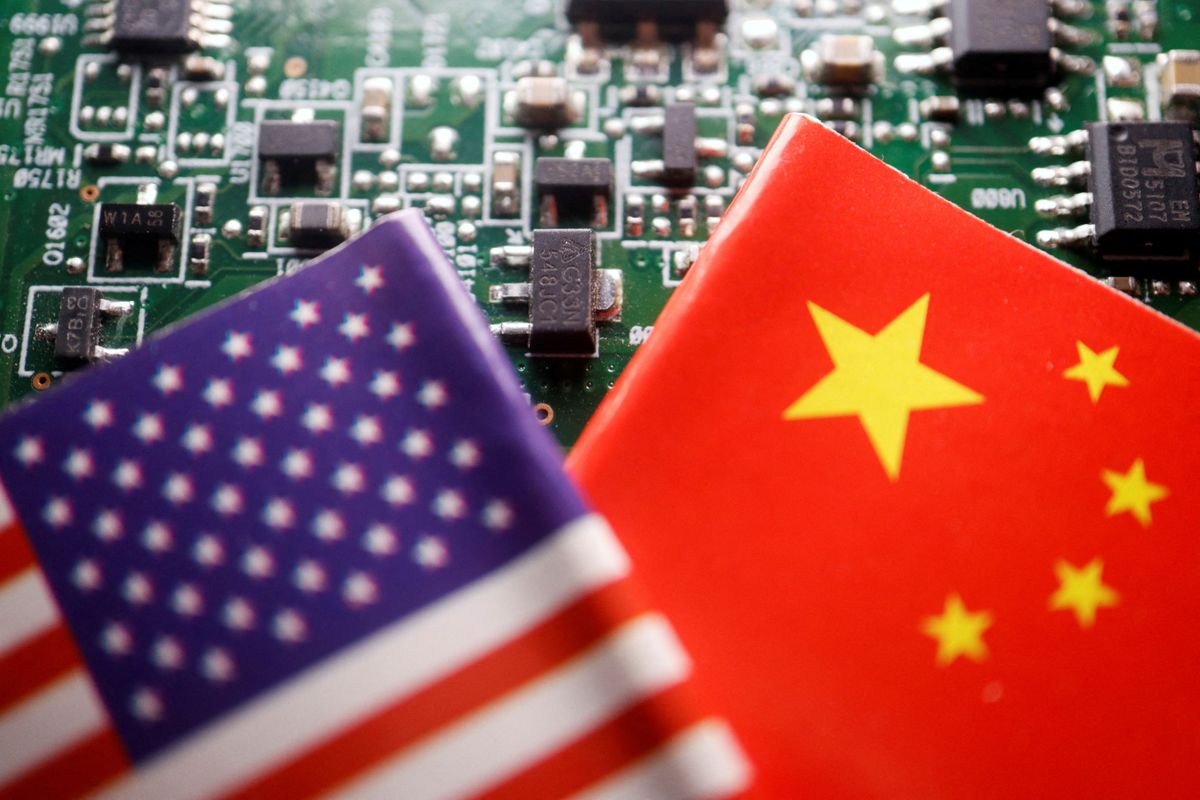China implements export restrictions on germanium and gallium
Things have been getting heated between China and the US, and tensions have been on the rise, especially in the tech sector.

A few minutes every morning is all you need.
Stay up to date on the world's Headlines and Human Stories. It's fun, it's factual, it's fluff-free.
The backstory: Things have been getting heated between China and the US, and tensions have been on the rise, especially in the tech sector. For example, last October, the US decided to put some restrictions on selling advanced chip technology to Chinese companies, which is making it pretty tough for Beijing to get what it needs to boost its chip industry. This caused a ripple effect in the industry and ramped up tech competition between the two nations. In fact, the Netherlands and Japan followed suit by imposing similar restrictions on exporting chip manufacturing equipment to Chinese firms in March.
Then, China launched a cybersecurity investigation into Micron, one of the biggest players in the US chip game. China raised concerns about Micron in May, saying it had "serious network security risks."
US Secretary of State Antony Blinken met with China's President Xi Jinping in Beijing last month. During the meeting, Xi reassured Blinken that China doesn't want to replace the US and respects its interests. But China expects reciprocal respect and emphasized the importance of stable relations between the two countries.
More recently: Enter germanium and gallium, two metals that play a vital role in the global tech scene. They’re crucial components in high-tech applications like semiconductors and electronics. Right now, China holds a dominant role in the market for these metals. It's the primary global source, supplying 94% of the world's gallium and 83% of the germanium, as highlighted in a recent study by the EU on critical raw materials.
The development: China just announced export restrictions on germanium and gallium. These restrictions will kick in from August 1, and exporters will now need to secure a license to ship these metals out of China. And the license application must specify who's importing the metals and how they plan to use them.
China's Ministry of Commerce said these restrictions are about protecting the country's national security and interests. On the other hand, some analysts are seeing this as a response to US moves to slow China’s tech advances. Sources revealed to Reuters that the ministry had scheduled a meeting with major metal producers on Thursday to chew the fat over these new rules.
Key comments:
"This move will have a limited impact on global supply given the targeted scope," said Eurasia Group analysts Anna Ashton, Xiaomeng Lu and Scott Young in a note. "It is a shot across the bow intended to remind countries including the United States, Japan and the Netherlands that China has retaliatory options and to thereby deter them from imposing further restrictions on Chinese access to high-end chips and tools."
"I think we gain and China gains from trade and investment that is as open as possible and it would be disastrous for us to attempt to decouple from China," said US Treasury Secretary Janet Yellen during an appearance before Congress last month.
"China has hit the American trade restrictions where it hurts," said Peter Arkell, chairman of the Global Mining Association of China.
"It's clearly timed to send a not-so-subtle message to the Biden administration that China holds significant cards when it comes to inputs to the semiconductor, aerospace and automobile industries and can and will increasingly be willing to inflict pain on US companies," said Paul Triolo, senior vice president for China at strategy firm Albright Stonebridge.
"The review found that Micron's products have serious network security risks, which pose significant security risks to China's critical information infrastructure supply chain, affecting China's national security," said the Cyberspace Administration of China (CAC) in May.
"We seek a healthy economic relationship with China: one that fosters growth and innovation in both countries," said US Treasury Secretary Yellen in April.




Comments ()